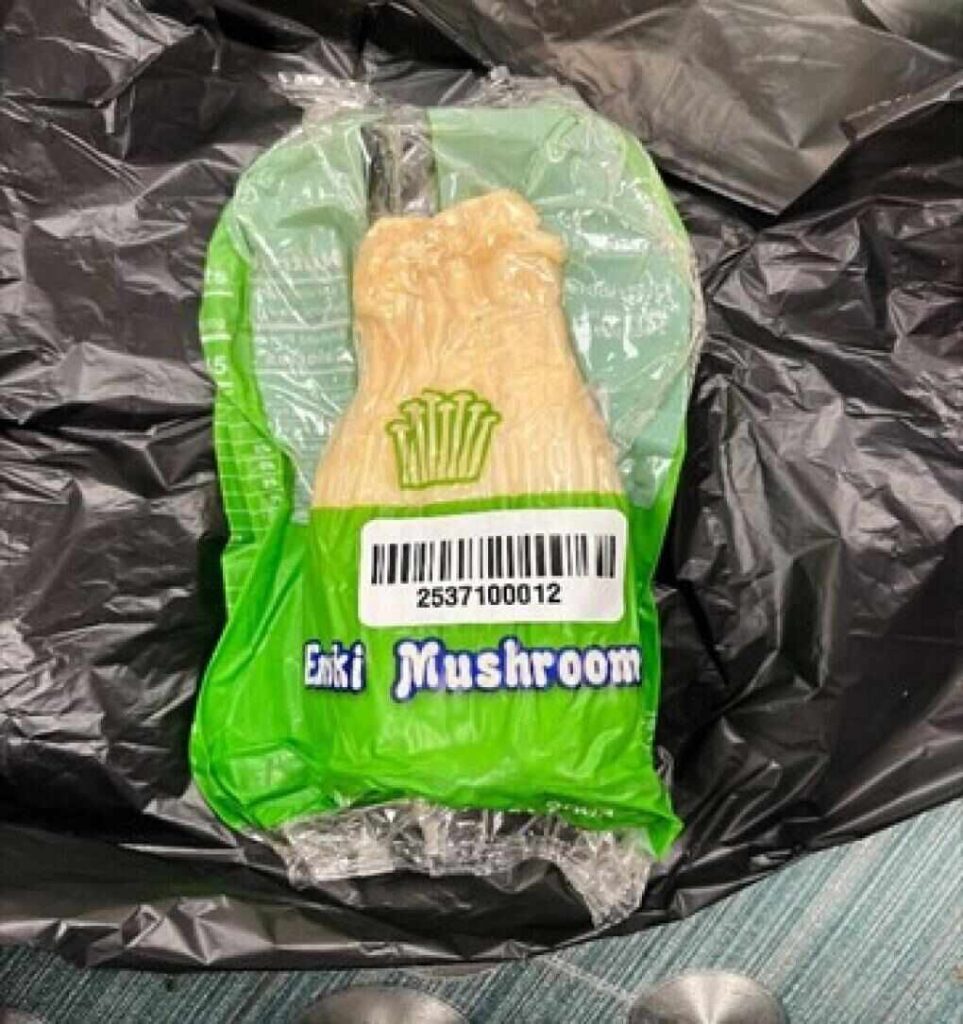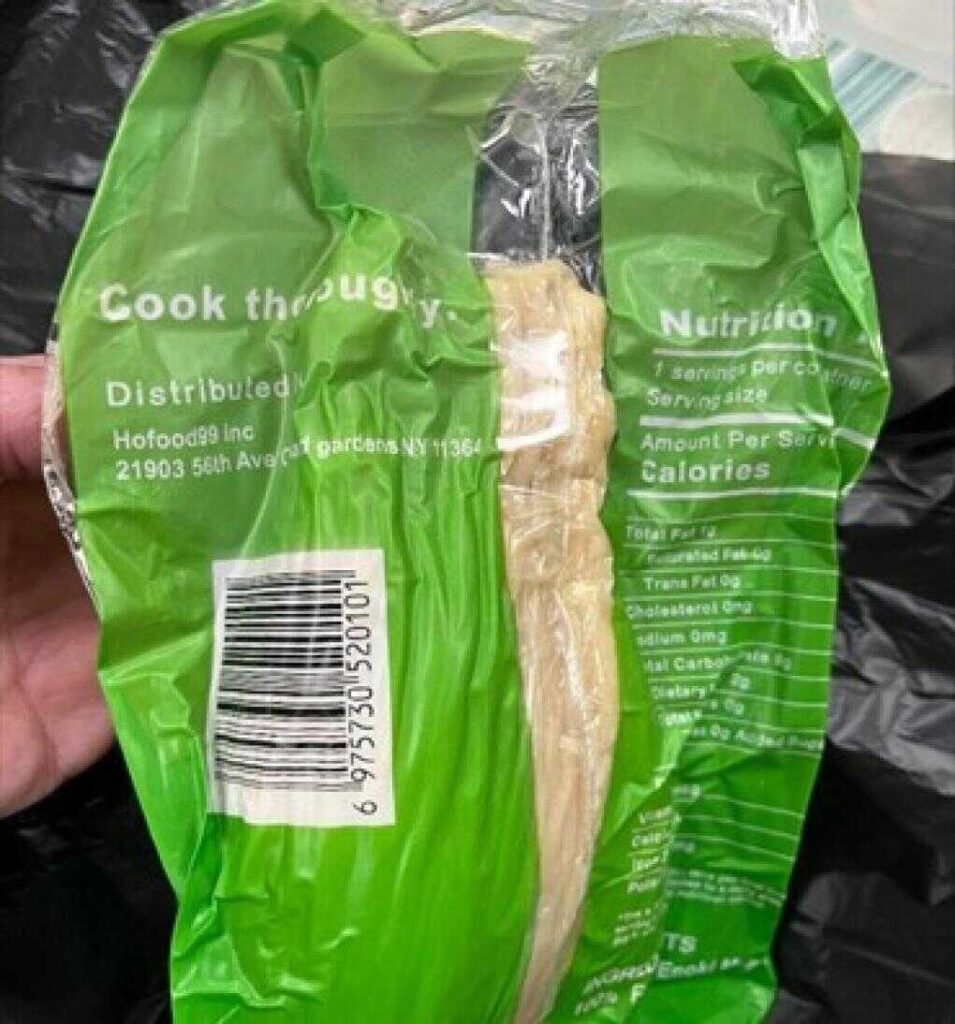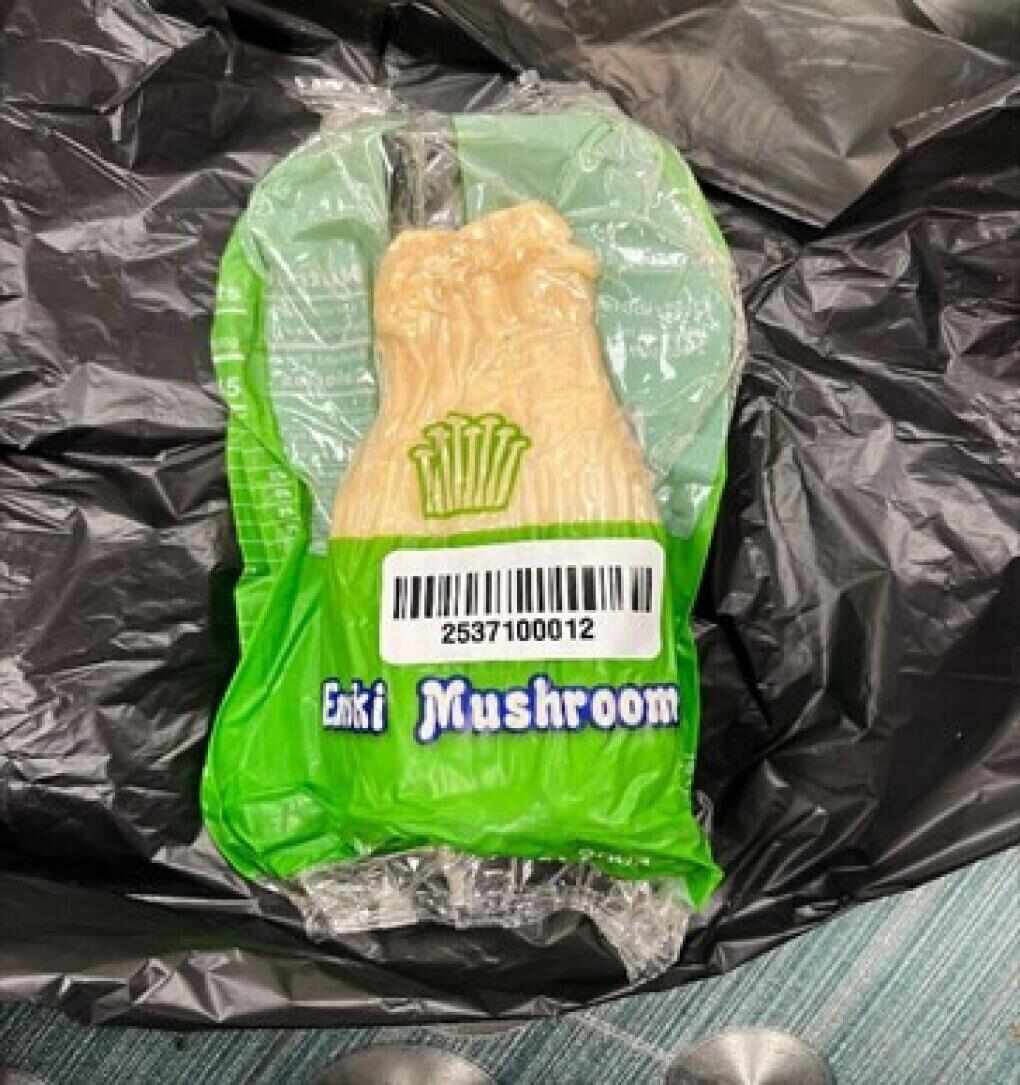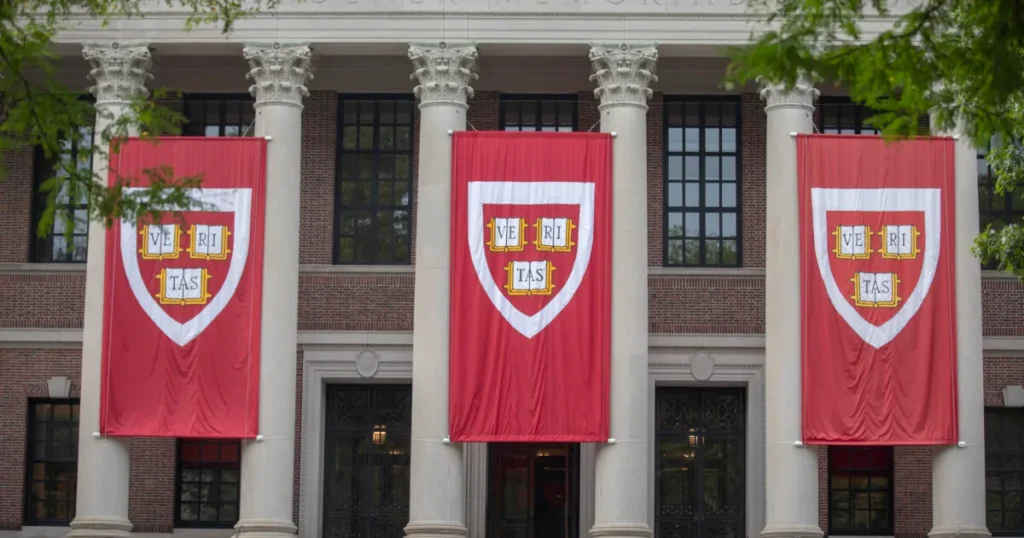Harvest NYC Inc. has pulled its enoki mushrooms from stores across the country after tests found possible Listeria contamination. The Brooklyn company’s recall covers all 200-gram packages sold between January 11-31, 2025.
The recall was prompted after testing detected Listeria monocytogenes in mushroom samples taken from a store in Buffalo. Officials at the New York State Department of Agriculture and Markets Food Laboratory verified this contamination.

Shoppers need to look for green plastic packages marked with UPC barcode 6975730520101 on the back. Hofood99 Inc. of Oakland Gardens, NY distributed these products to stores nationwide.
“When we see Listeria in food products, we worry most about vulnerable groups like young children, elderly individuals, and people with compromised immune systems,” noted a food safety specialist with knowledge of such recalls. “These populations face the highest risk of dangerous complications.”
Healthy people who eat contaminated food might experience fever, headaches, stiffness, nausea, stomach pain, and diarrhea. Listeria infection poses additional dangers for pregnant women, including miscarriage and stillbirth.
Similar Posts
No illnesses have been reported so far from these mushrooms. However, Listeria symptoms can appear after consumption of contaminated food.
The FDA recommends throwing away these mushrooms immediately or returning them to the store for a refund. People with questions can call Harvest NYC Inc. at (718) 596-0777.

Food safety specialists recommend washing hands before and after handling mushrooms. While enoki mushrooms sometimes appear in raw dishes, cooking them thoroughly kills harmful bacteria. Experts suggest cooking to 165°F to kill Listeria bacteria.
This recall highlights the challenges in keeping fresh produce safe. Listeria survives in soil and water and can grow even in refrigerator temperatures, making it particularly troublesome for foods eaten without cooking.

Consumers who develop symptoms after eating potentially contaminated products should seek medical attention. Early treatment is important, especially for people in high-risk groups.


















